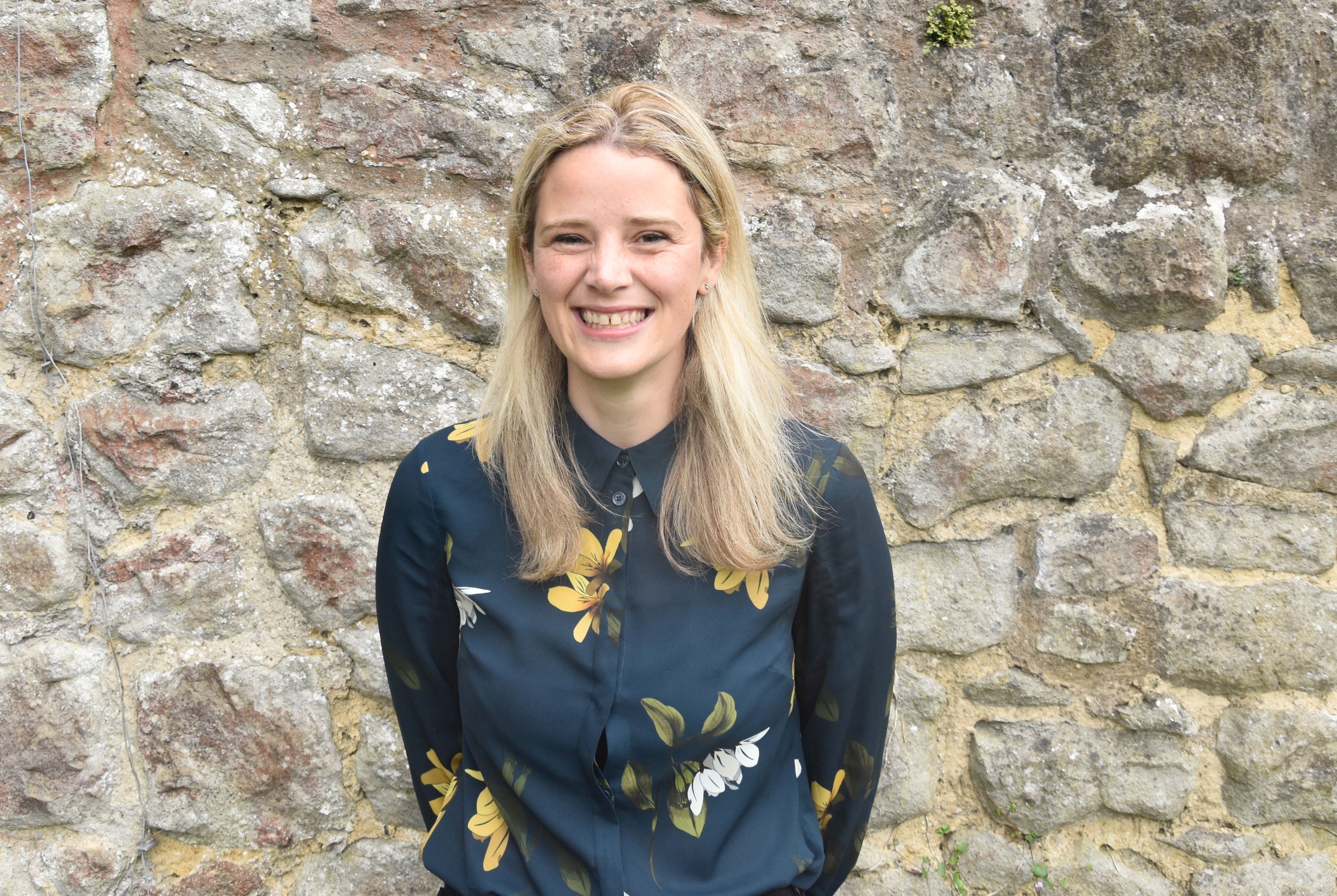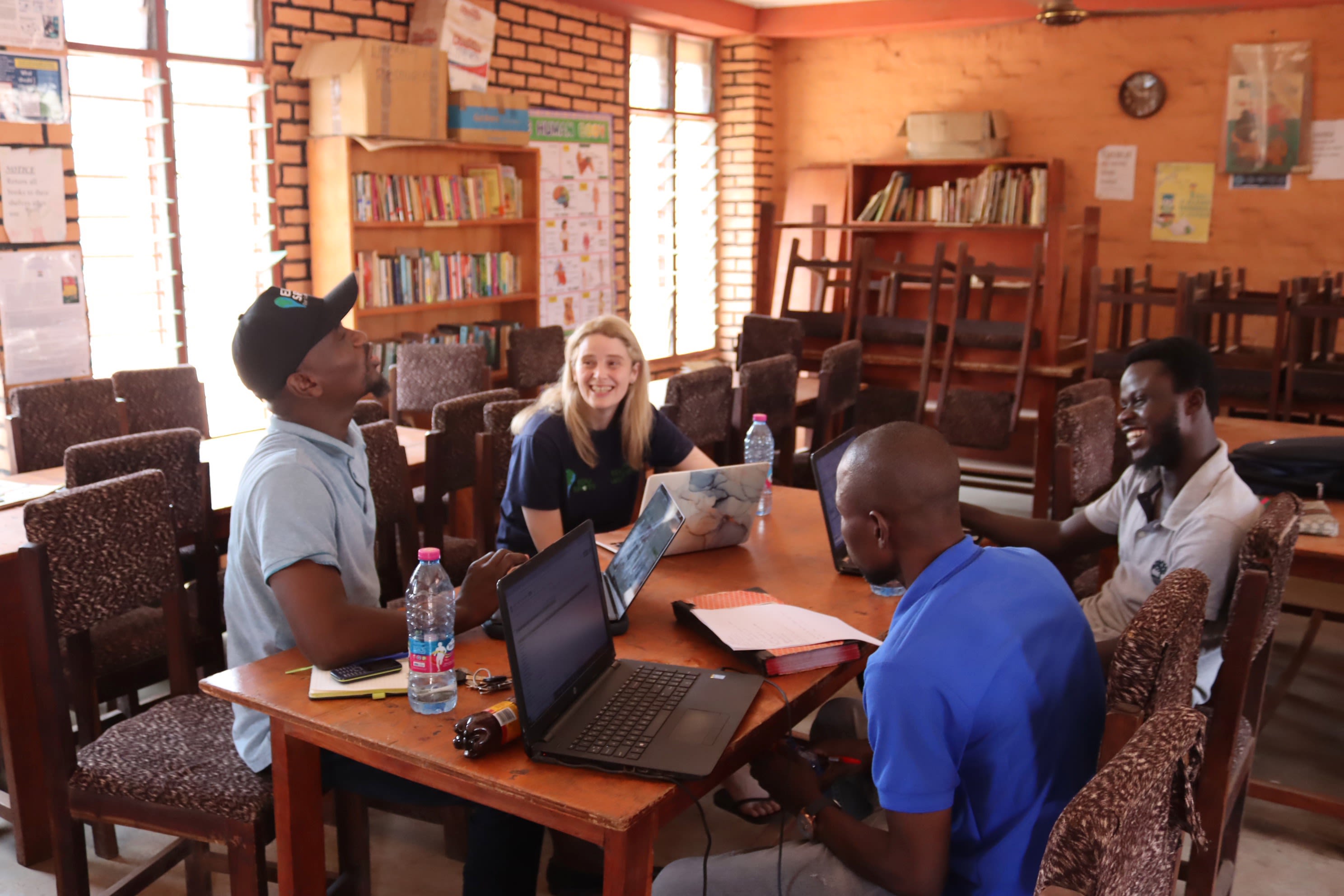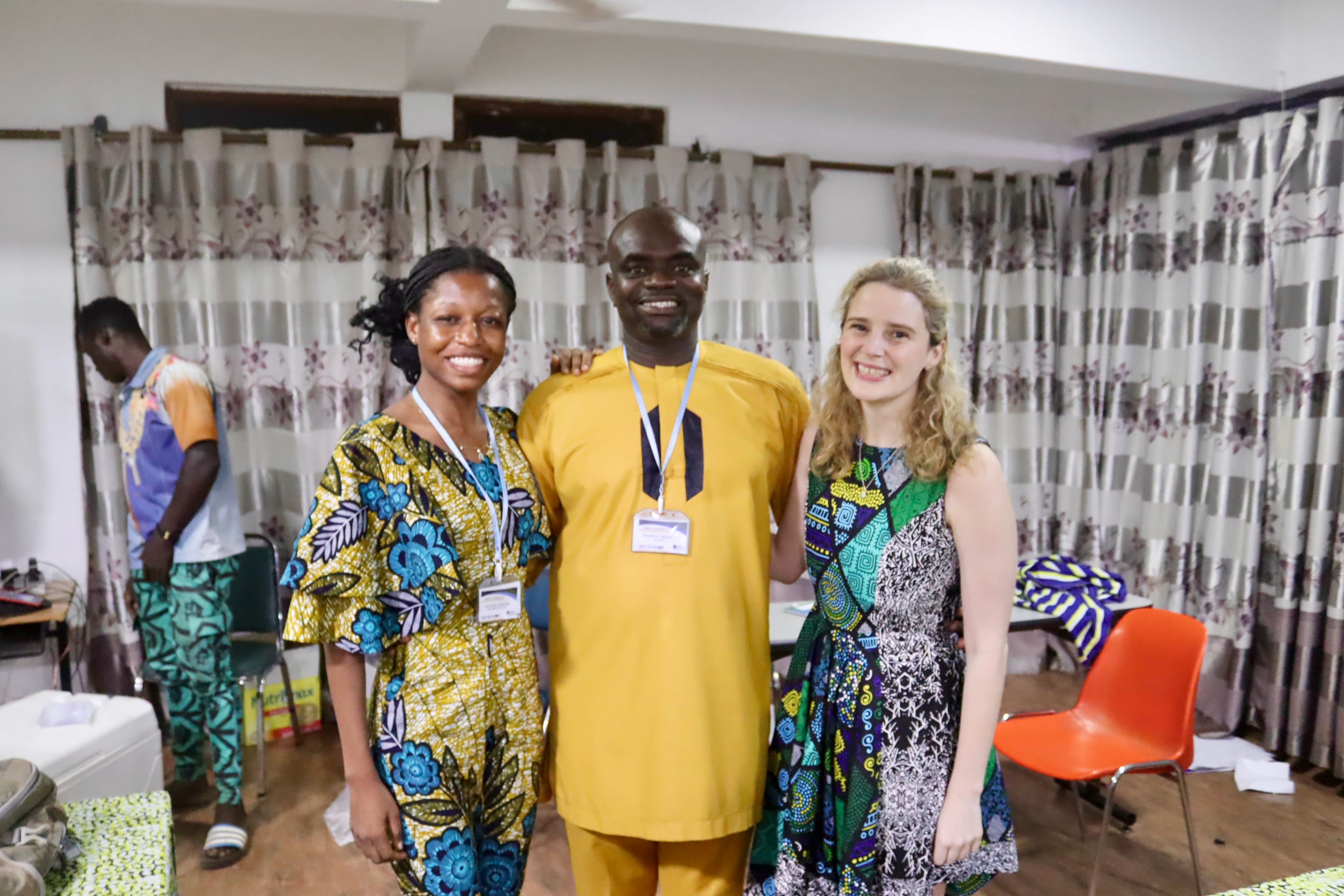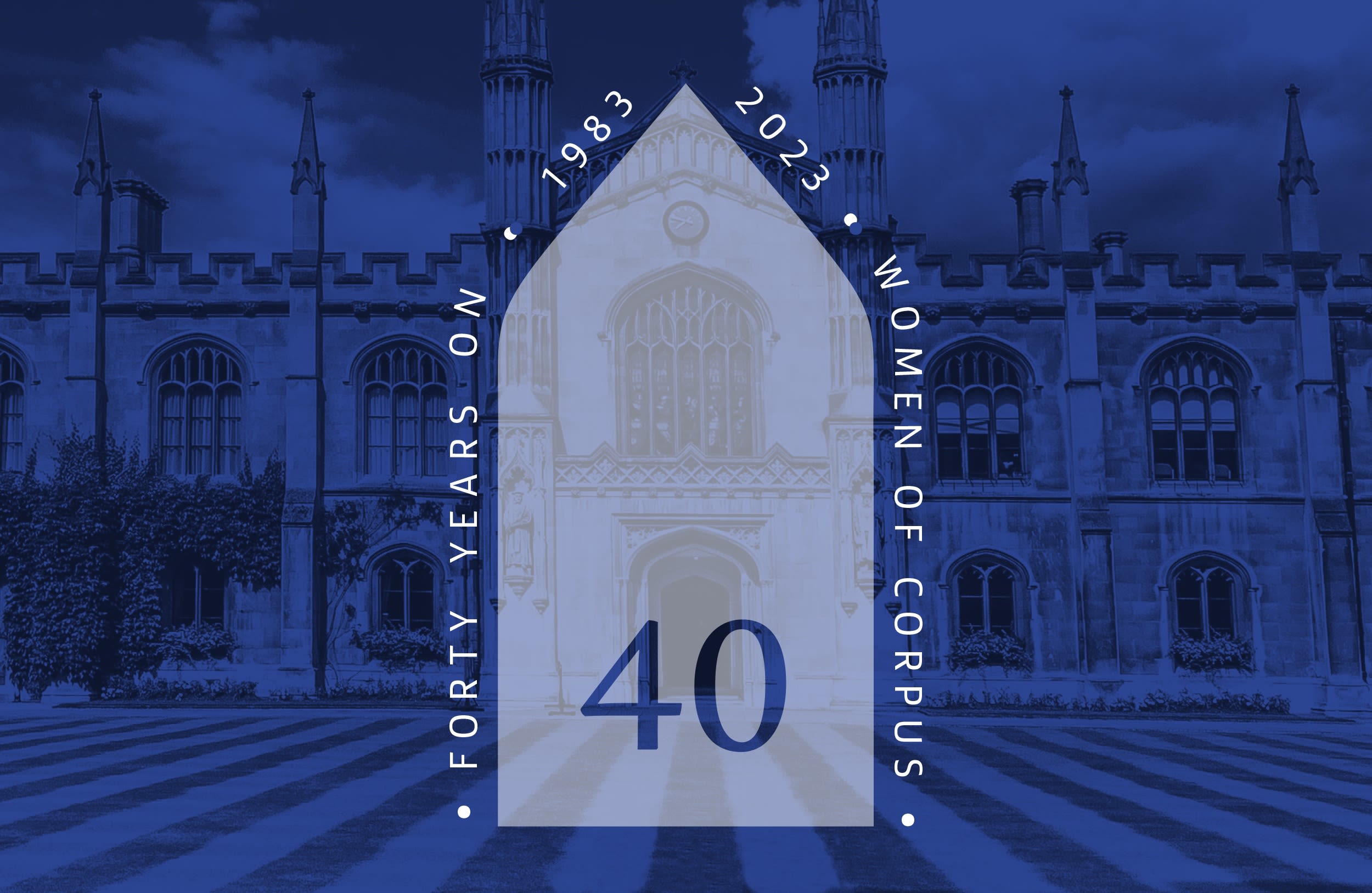CAT DAVISON
(Philosophy, m2006)

Cat Davison developed a sense of justice early on. Now a charity CEO after spending 11 years teaching in the classroom, she says, “I was very young when I started asking philosophical questions and remember I was always fascinated by notions of fairness. As I moved into high school I remember standing in the mock election for the Green Party and created a mini social business making jewellery called ‘Bracelets for Change’.”
Those instincts led Cat through an academic and then educational path to her current position as Founder and voluntary CEO of EduSpots, a collaborative, community-driven education charity currently developing its model in Ghana and Kenya which reflects her belief in the transformative power of locally led learning, teaching and knowledge-sharing.
Coming to Cambridge
The combination of an analytical, questioning mind and an entrepreneurial streak brought Cat to Corpus in 2006 to read the Philosophy Tripos, which she followed in a fourth year taking Part II in Management Studies at the Judge Business School.
“Studying philosophy at Cambridge gave me a useful foundation in analysis, critical thinking, building arguments, how to work out solutions to questions of identity and knowledge,” says Cat. She ‘did a deep dive’ Plato’s Theaetetus, which “is all about knowledge. I’m really interested in how knowledge is constructed, especially where it connects with human behaviour and culture.” Cat was also involved in various leadership roles during her undergraduate years, leading events, sports and societies for the JCR, and captaining a University hockey team. The year she spent at the Judge was a ‘jump’ from philosophy which introduced her to systems of economic theory and operations management that she would continue to explore into a social justice context some years later.
Although she hadn’t planned a career in education, after graduating Cat successfully applied for a position teaching philosophy and ethics, engaging her students in questioning the sources of their knowledge and encouraging them to interrogate their perspectives on social justice issues. Whilst teaching full-time, she completed a PGCE at Buckingham University and later a part-time MA in International Development and Education at University College London. There, her research focussed on literacy as a social practice, considering the potentially divisive consequences of community literacy programmes and exploring decolonised models of educational development.
How do we educate?
Cat’s thinking about knowledge and education continued to evolve as she started spending time in Ghana in association with a UK school partnership. Early in her teacher training, she says, “I used to believe that education at its core should enable students to have the freedom to fully explore their own character development. I still believe that, but now I position all educational activities in a wider community context, examining the relationship between education systems and wider concepts of justice and equity in societies.”
After some years of research, in 2016, Cat worked with many Ghanaian educators and a driver, Francis Yeboah, to create a new charity EduSpots, which aimed to create a model for truly community-driven education through the co-creation of community-led and owned hubs across Ghana. The concept of a ‘Spot’ is a play on the Ghanaian labelling of bars as ‘Spots’ which aimed to remodel often the quiet western concept of libraries to become vibrant centres of knowledge exchange, rooted in Ghanaian culture. The first Spot, lit by solar, was created within a disused classroom space in Abofour. Since then, EduSpots has supported the creation of 50 community-led education spaces, with an estimated 15,000 annual users supported by an active network of over 250 local volunteers (‘Catalysts’).
The Catalysts enrol onto three staged leadership programmes and are given support in creating structured community-based clubs for students focused on creative literacy, STEM and environmental education and girls’ empowerment, alongside mentoring relating to wider Spot operations and resource management.
Building a ground-up network
Cat and the EduSpots team have spent considerable time reflecting on their model of a community-led education space or library, which they have now formally codified into their ‘Dream Spot Model’ handbook. Cat also realised early on that creating a network between Catalysts often held more value to them than the resource and construction support.
“I think it was when we had five different Spots, that I connected the leaders together on WhatsApp. I began to see the really strong impact that was gained through them sharing ideas and being inspired by each other, and having that intercultural understanding as well, because within Ghana there's huge regional cultural diversity. Over time, we employed Catalysts in part-time roles to strengthen this network and training.”
Coming from a teaching background, Cat has had to pick up an entrepreneurial skill set relatively quickly, with fundraising strategies driven through extensive crowd funding, endless applications to trusts and foundations, and writing and selling online courses on community-led development and charitable ethics.
She has also learnt extensively about community engagement through working with a range of stakeholders in Ghana, taking this experience back to the UK where she continued to work in a school as a Director of Service and Partnerships overseeing over 60 school and community partnerships.
“At its core, EduSpots is trying to model what community-led education looks like: what it means to truly place responsibility and funding in the hands of a mix of local teachers, community members and students, to advance their local educational opportunities, and build their own plans for their community's future.”
Cat is highly aware of her position as a non-Ghanaian working in Ghana. EduSpots continuously reflects on the reproduction of power inequalities, ensuring all decisions relating to the local context are made by local community members, with over 60 percent of the 26-strong staff team bringing experience of being Catalysts in Spot communities. Over 100 flexible grants have been awarded to communities since 2016, driven by their own analysis of their needs and aspirations for the future.
She is sometimes asked why EduSpots doesn’t simply work in schools. “The community education space has a very important role to play in advancing educational equity,” she says. “When I ask students accessing the Spots why we involve communities in education, they quickly explain the need for community support for students’ to stay in school in the Ghanaian context, the wealth of knowledge and skills the community bring, and the need for students to have learning support beyond the classroom setting to open up opportunities, especially where a high percentage of their parents may not have accessed formal education.”
The EduSpots team are currently exploring strategies to deepen and extend the impact of their work, share their practice and facilitate wider community-driven change. As part of this, they are developing an app which they hope will enable community members across the world to have the tools needed to create their own school-connected but community-led education hubs.
EduSpots won the Tes International Award in 2018, alongside being selected as a Finalist for the Theirworld Education Innovation Prize in 2023, and shortlisted for the EDUCOM Award for NGO Contribution to Education in Ghana. Cat herself was recognized for her innovative curricula and her approach to community-centred education when she was selected as a finalist for the 2021 Varkey Foundation $1 million Global Teacher Prize in partnership with UNESCO.
The story was originally published in The Pelican 2023.

“The key outcome areas that we’re looking for are signs of active citizenship in both the students and the volunteers, and wider community collaboration. We want to spark confidence that they can change things in their communities from within. Every community has people with incredible talents and assets, and they need to be at the centre of their own development, building a future that we call ‘Our Collective Future’.."

